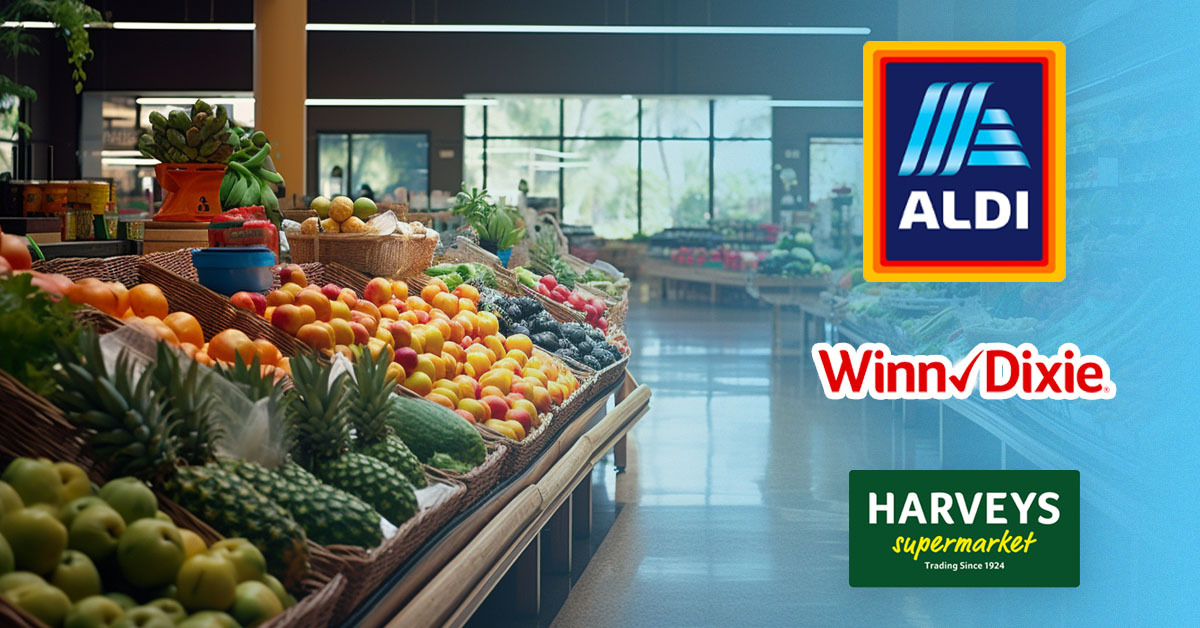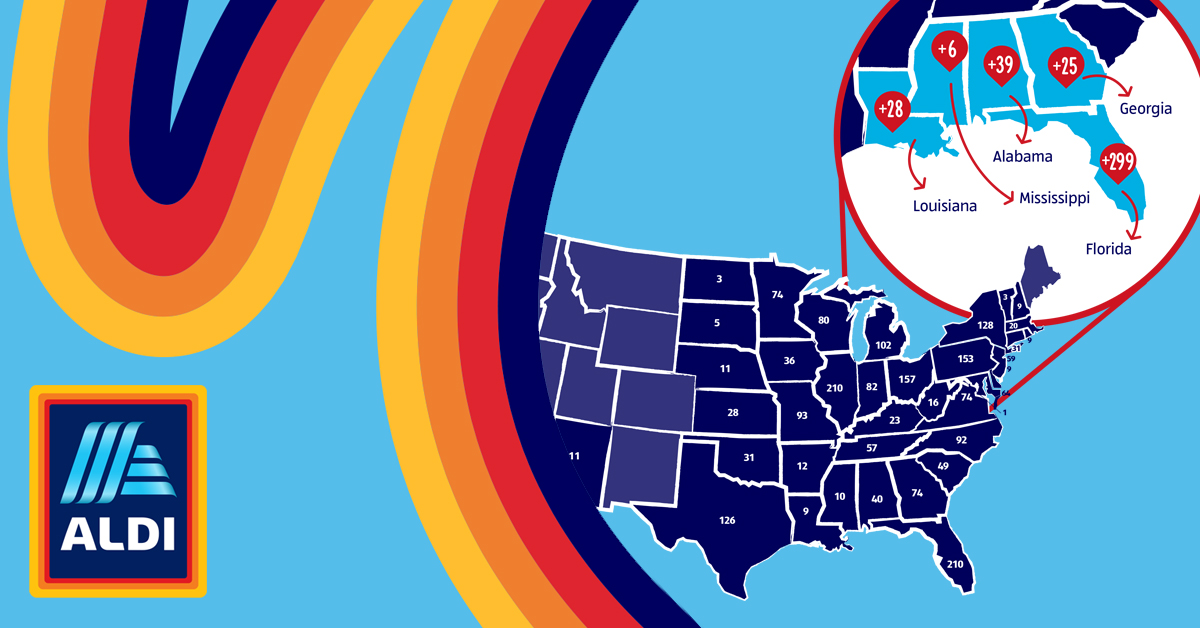Heading South: ALDI to Acquire Winn-Dixie, Harveys stores (Updated)

ALDI announced today it is acquiring Southeastern stores Winn-Dixie and Harveys from Southeastern Grocers (SEG), marking another step in grocery industry consolidation following Kroger and Albertsons’ announced merger last fall.
Deal Details:
ALDI, a German-owned private supermarket company that owns a variety of stores internationally, will acquire all outstanding SEG stock in an all-cash transaction that will include roughly 400 stores in Alabama (39 stores), Georgia (25 stores), Louisiana (28 stores), Mississippi (6 stores) and Florida (229 stores). The retailer is expected to convert some stores to the ALDI banner, while continuing to operate others as Winn-Dixie and Harveys.
“ALDI will operate Winn-Dixie and Harveys Supermarket stores with the same level of care and focus on quality and service, as we also evaluate which locations will convert to the ALDI format to better support the neighborhoods we’ll now have the privilege of serving,” Jason Hart, ALDI CEO said in a press release. “For those stores we do not convert, our intention is that these continue to operate as Winn-Dixie and Harveys Supermarket stores.”
Concurrently, SEG also announced it is selling its 28 Fresco y Mas stores and four pharmacies to investor-backed Fresco Retail Group.
The transaction is expected to close in the first half of 2024

How Does This Help ALDI Advance?
ALDI has expressed its desire to expand further into the U.S. for the last several years, adding more than 1,000 stores since 2011, with over 420 stores now in the Northeast and close to 300 in Illinois and Missouri. The company has limited presence in the West, aside from 100 stores in Arizona and California. Adding Winn-Dixie and Harveys to its portfolio gives the retailer a stronger foothold in the Southeast, a particular focus for geographic expansion since it launched there in the mid-1990’s.
To support this growth, earlier this year ALDI opened its 26th regional headquarters and a 564,000-square-foot distribution center in Loxley, Alabama which the company said could ultimately service around 100 stores across the Gulf Coast, with 20 coming online this year alone. In total, the company says it has invested over $2 billion into infrastructure in the area and created more than 4,300 jobs.
“The time was right to build on our growth momentum in the Southeast,” Hart said in a document shared by the retailer. “ALDI will operate Winn-Dixie and Harveys Supermarket stores with the same level of care and focus on quality and service. Together, we’ll help customers save time and money when they need it most and give employees rewarding careers they can feel proud of.”
The growth doesn’t just stop with the Southeast, though. In the materials distributed today, ALDI said it would open over 120 ALDI stores “coast-to-coast” by year’s end, for a total of 2,400 locations. The retailer’s website currently lists 2,304 existing and soon-to-open locations.
Why Is SEG Selling?
It’s been a difficult decade for SEG. In 2013 the company filed with the Securities and Exchange (SEC) to go public, yet the IPO was scrapped just a year later.
Just five years later in March 2018 the retailer announced it would enter into a restructuring agreement with its creditors and voluntarily file for chapter 11 bankruptcy protection, shuttering 94 of its stores. The move ultimately allowed the company to reduce its debt by over $500 million, and subsequently invest into consumer-facing improvements such as store remodels, new store openings and a more robust loyalty program.
In 2020, the company once again filed to go public, offering its investors and owners a way to exit the business, but less than a month later announced that it would delay the IPO. One year later, it pulled the IPO entirely. According to The Jacksonville Daily Record, in the filing the company estimated it would bring in $9.6 billion in sales in 2020 and listed its largest owners as Fidelity Investments, Osterweis Capital Management and Lone Star Funds. With the IPO off the table, the Wall Street Journal reported in November, the company began to instead explore a sale.
“Our successful transformational journey has created a unique opportunity with leading partners who share our vision and common commitments to creating value for their customers,” Anthony Hucker, President and CEO of Southeastern Grocers, said in a statement today.
















